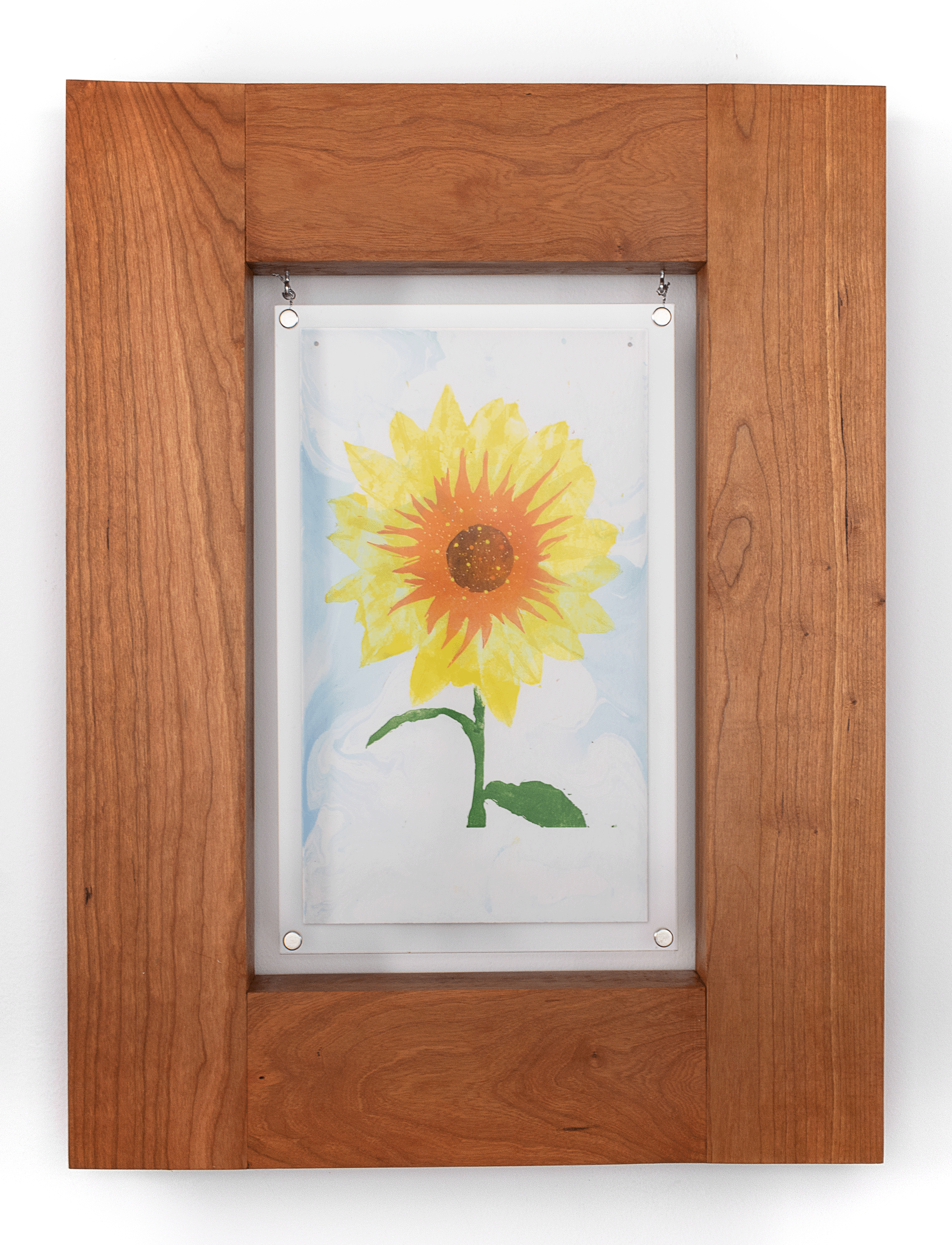Variation #20
By Konrad Will
Print: Artist Proof 2/10
Frame: cherry wood, battered pillar, gouges
The tangible costs of Russia’s invasion of Ukraine are evident, but there are significant intangible costs as well. Ukrainians are being forced to confront the erosion liberties that helped create the modern Ukrainian nation.
Since the large-scale invasion began, Ukrainian media has openly acknowledged practicing self-censorship, particularly during the first year of the invasion, primarily to protect national security and maintain morale. While this can be seen as a patriotic response to the crisis, in the long run, avoiding uncomfortable truths ultimately does a disservice to both the media and their audience. This issue goes beyond internal pressures. There have been ongoing reports of Zelenskyy's government attempting to exert external pressures on the media—ranging from controlling coverage to blacklisting individuals—since the start of the war. Ukraine’s fiercely independent media having been pushing back against these pressures, refusing to be silent on issues like corruption and conscription.(A)
Conscription has become a particularly contentious issue in Ukraine. In July, the media outlet ZN,UA conducted a survey that revealed a conflicted nation.(B) While 43.9% of those surveyed believe that Ukraine and Russia should enter peace talks, only 4.5% are willing to cede any territory to Russia, and 65.6% believe that Ukraine can win the war. But to win the war, Ukraine needs people to fight, and the military is stretched thin.(C) To address this, the government in Kyiv has relied on conscription, but the process has become highly divisive. According to the survey, 46.1% of respondents believe it is acceptable to dodge the draft.
The Ukrainian government’s response to this dilemma has only deepened the divide. As the war drags on, reports of men—some with legal exemptions—being forcibly detained on the streets by conscription officers have increased. The May mobilization law lowered the draft age and made it easier for those eligible for conscription to register, theoretically expanding the draft pool dramatically. There is no guarantee, though, that these registrations will translate into more soldiers on the ground.
Censorship and coerced conscriptions are just two examples of how civil liberties in Ukraine are becoming compromised. Ukrainians are increasingly being asked how much of their freedom they are willing to sacrifice in order to preserve it. No one should be forced to destroy what they hold dear in a desperate attempt to save it.
A) For more on corruption, see Variation #13.
B) I helped start ZN,UA in 1994 and worked there for three years. I am still in contact with them.
C) For more on the military, see Variation #16.
See below for further reading and background.
Upholding Truth in the Crossfire: Challenges Faced by Ukrainian Journalists, Release Peace, Mar 24.
The battle for journalistic freedom in wartime Ukraine, Open Democracy, 3 May 23.
‘A Big Step Back’: In Ukraine, Concerns Mount Over Narrowing Press Freedoms, The New York Times, 18 Jun 24.
War or Peace. Ukrainians want 1991 borders back—but who can make it happen? Results of a sociological survey, ZN,UA, 15 July 24.
Conscription squads send Ukrainian men into hiding, BBC, 17 Jun 24.
‘Mobilisation’ from Yevgenia Belorusets War Diaries, Isolarii, 18 July 24.
Ukraine’s mobilization effort gets boost as millions update draft data, Kyiv Independent, 24 Jul 24.
Ukraine: Freedom in the World 2024, Freedom House Annual Report.


